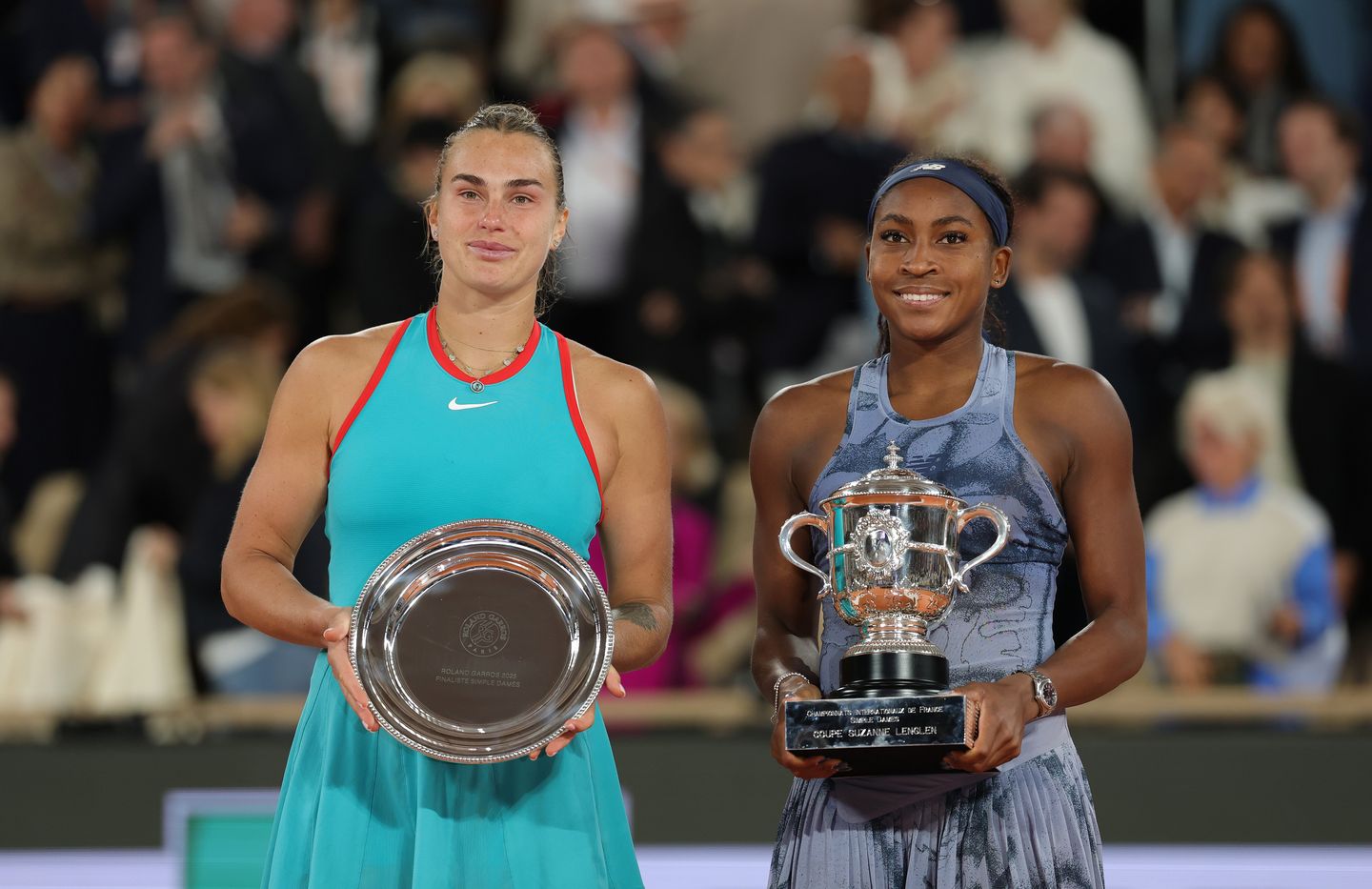
Coco Gauff won the French Open but faced backhanded comments from opponent Aryna Sabalenka; she responded with grace and facts.
Michelle Obama once famously said, “When they go low, we go high,” and once again, a Black woman finds herself having to be the bigger person despite someone else’s attitude. This weekend, Coco Gauff made history as the first American to win the coveted Grand Slam tournament since Serena Williams in 2015. However, as she celebrated her win, her opponent, Aryna Sabalenka, struggled to come to terms with the final match score.
On June 7, Gauff and Sabalenka stepped onto the court and faced off in difficult, windy conditions. Despite these circumstances, Gauff, who holds a #2 ranking, defeated Sabalenka, who has the #1 slot, 6-7 6-2 6-4. In a press conference following the tournament, the Belarusian told reporters that “it was the worst final I have ever played.”
“I think [Gauff] won the match not because she played incredible, just because I made all of those mistakes,” she said, referencing the 70 unforced errors she reportedly made throughout the match. “She was hitting the ball from the frame. Somehow, magically, the ball lands in the court. It felt like a joke, honestly, like somebody from above was there laughing, like, ‘let’s see if you can handle this’.”
“That hurts,” she continued. “Especially when you’ve been playing really great tennis during the whole week, when you’ve been playing against a lot of tough opponents, Olympic champion [Qinwen Zheng], Iga and then you go out, and you play really bad.”
In her critique of her performance, Sabalenka expressed that she believes Iga Swiatek would have won the final match against Gauff, a statement the American tennis star did not agree with.
“I mean, I don’t agree with that,” Gauff said in her press conference. “No shade to Iga or anything, but last time I played her, I won in straight sets. I don’t think that’s a fair thing to say, because anything can really happen.”
“The way Aryna was playing the last few weeks, she was the favourite to win. So I think she was the best person that I could have played in the final,” she continued. “Her being No. 1 in the world was the best person to play, so I think I got the hardest matchup just if you go off stats alone.”
The following day, Sabalenka walked back her comments on Gauff, admitting that the French Open champion “handled the conditions much better than I did and fully deserved the win,” in an Instagram stories post.
“She was the better player yesterday, and I want to give her the credit she earned. I’m always going to be honest and human in how I process these moments. I made over 70 unforced errors, so I can’t pretend it was a great day for me,” she continued. “But both things can be true… I didn’t play my best, and Coco stepped up and played with poise and purpose. She earned that title. Respect.”
When asked about her opponent’s comments during an appearance on “Good Morning America,” Gauff extended grace.
“Obviously, I know she was probably a bit emotional after that match; it was a tough loss,” Gauff shared. “But honestly, when I stepped on the court, I was aware of the wind. We both practiced with the roof closed, so I honestly wanted the roof to be closed before the match. But when I found out it was open and I saw how windy it was on the court, I knew it was going to be an ugly win. Whenever you play in windy conditions and you play tennis, you know it’s not going to be a perfect day on a windy court.”
“I was a little bit surprised by the comments, but I’m going to give her the benefit of the doubt,” she concluded.
While many users, including Robin Roberts, praise her for her poised response, the question remains: Why do we always find ourselves having to be the bigger person in these scenarios?
!function(){var g=window;g.googletag=g.googletag||{},g.googletag.cmd=g.googletag.cmd||[],g.googletag.cmd.push(function(){g.googletag.pubads().setTargeting(“has-featured-video”,”true”)})}();
Originally sourced via trusted media partner. https://thegrio.com/2025/06/09/coco-gauff-gives-aryna-sabalenka-the-benefit-of-the-doubt-after-controversial-post-french-open-comments/
































